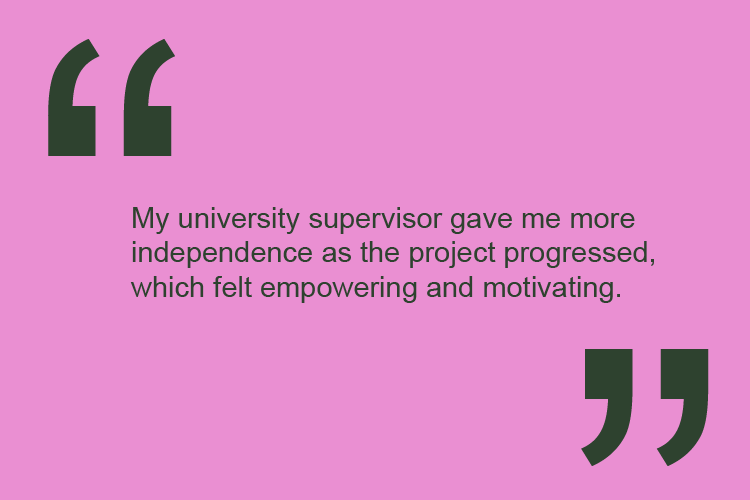Aleksander Szewczyk applied for a summer project because he felt a little disconnected from the experimental side of things due to missing some practical classes during lockdown, and wanted to get more practical experience.
My project was about measuring nanoparticles using DDM (Differential Dynamic Microscopy). It’s a relatively new particle sizing technique, in some sense similar to more widely used DLS, but instead of measuring scattered laser light a microscopic image is analysed. How fast this image decorrelates can be used to characterise Brownian motion, and therefore get the particle radius (under the assumption it’s spherical). In practice, I would prepare a colloidal sample and record it under a microscope. After that, I would use a program to analyse the data and get the particle radius.
My university supervisor was Job Thijssen, who gave me more independence as the project progressed, which felt empowering and motivating. Other university staff were also willing to help include Andrew Schofield, who showed me different lab techniques, and Jochen Arlt (microscopy lab supervisor) and Joe Bradley (PhD student), who showed me how to conduct the experiment and helped me troubleshoot if something wasn’t working.
Skills I learned and developed:
* communication: I needed to contact various people to ask them for help and supervision on some of the experiments. I also needed to present my results in a clear manner to both my supervisor and the external company.
* planning my work: some experiments took a long time, others required booking a microscope that was also used for other research.
* general overview of some science careers: not a skill as such, but it was a valuable experience and it will definitely help me choose my future career path.
* project-specific hard skills: even though I study Chemical Physics, I learned some new wet lab techniques and how to use DDM software.
My advice for other students would be to try to start writing your report early. Even if you don’t have all the results yet, you can draft the introduction and methodology. It is easier than starting the report after the project ended.
Further information
Learn more about the School of Physics and Astronomy’s Career Development Summer Scholarship Programme: SoPA Summer Programme



